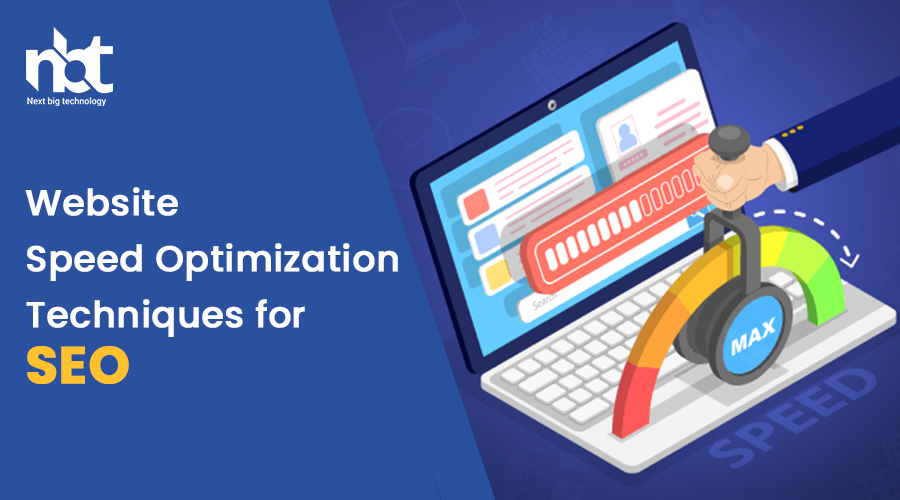Table of Contents
Understanding the Significance of Website Speed

Website speed is not just a matter of user convenience; it significantly impacts SEO. Search engines favor fast-loading websites because they provide a better user experience. A website’s speed is one of the ranking factors, and it can affect your search engine rankings.
Consequences of a Slow-Loading Website
Before we dive into optimization techniques, let’s understand the repercussions of a slow-loading website. Slow sites experience higher bounce rates, lower conversions, and decreased user satisfaction. Google and other search engines may also penalize your website, pushing it down in search results.
Choosing the Right Hosting Provider

Your hosting provider plays a crucial role in your website’s speed. Opt for a reputable hosting provider that offers fast server response times, uptime guarantees, and scalable resources to handle traffic spikes efficiently.
Optimizing Images for the Web
Large image files can significantly slow down your website. Optimize images by compressing them without compromising quality. Utilize image formats like WebP and lazy loading to reduce loading times further.
Leveraging Browser Caching
Browser caching allows visitors’ browsers to store static files locally, reducing load times for return visits. Set up proper caching headers to enable this feature.
Minimizing HTTP Requests
Each element on a web page, such as images, scripts, and stylesheets, requires an HTTP request. Minimize these requests by combining and minifying files when possible.
Implementing Content Delivery Networks (CDNs)

CDNs distribute website content across multiple servers worldwide. This reduces server load and improves load times for visitors, regardless of their location.
Using Efficient Coding Practices
Clean and efficient coding practices can significantly impact your website’s speed. Minimize unnecessary code, use CSS and JavaScript efficiently, and remove any redundant plugins or features.
Enabling GZIP Compression
GZIP compression reduces the size of your website’s files before they are sent to the visitor’s browser. Smaller files mean faster loading times.
Reducing Server Response Time
Optimize your server configuration and database queries to ensure swift server response times. Faster server responses result in quicker page loads.
Prioritizing Above-the-Fold Content
Load critical content, known as “above-the-fold” content, first. This ensures that visitors see important information quickly while the rest of the page continues to load in the background.
Mobile Optimization for Speed

With the increasing use of mobile devices, optimizing your website for mobile speed is essential. Implement responsive design and AMP (Accelerated Mobile Pages) to cater to mobile users effectively.
Regularly Updating Plugins and Software
Outdated plugins and software can introduce vulnerabilities and slow down your website. Regularly update your CMS, plugins, and themes to maintain optimal performance.
Monitoring and Testing Website Speed
Use tools like Google PageSpeed Insights, GTmetrix, and Pingdom to monitor and test your website’s speed regularly. Continuously analyze the results and make improvements accordingly.
Conclusion
Website speed optimization is not just a technical necessity; it’s a critical component of SEO. By implementing the techniques discussed in this article, you can enhance your website’s speed, improve user experience, and boost your search engine rankings. Keep in mind that website speed optimization is an ongoing process, so regularly revisit and refine your strategies to stay ahead in the digital race.
FAQs
- Why is website speed important for SEO?
- Website speed is important for SEO because search engines prioritize fast-loading websites to provide a better user experience.
- How can I check my website’s speed?
- You can check your website’s speed using tools like Google PageSpeed Insights, GTmetrix, or Pingdom.
- What is browser caching, and how does it help speed up my site?
- Browser caching allows browsers to store static files locally, reducing load times for return visitors.
- Is mobile optimization necessary for website speed?
- Yes, mobile optimization is crucial for website speed, as mobile users expect fast-loading pages.
- How often should I update my website’s plugins and software?
- It’s advisable to update your website’s plugins and software as soon as updates are available to ensure security and performance improvements.
Thanks for reading our post “Website Speed Optimization Techniques for SEO”. Please connect with us to know more about SEO.

















